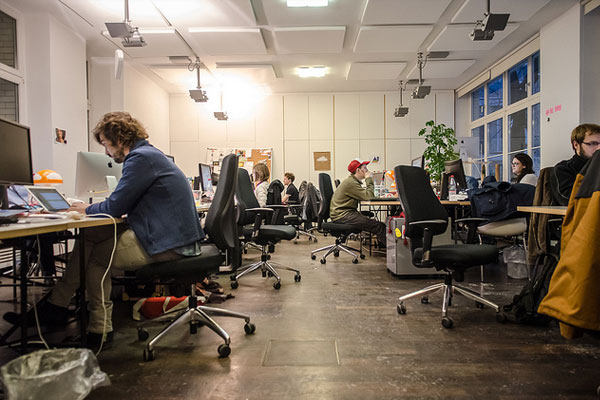There have been significant improvements in the way we perceive employee engagement and employee happiness. More and more managers have come to understand that their team members are their most valuable resource and if they’re not satisfied with their job numbers start to drop – productivity, retention, advocacy and revenues, it’s all going down.
However, we’re still a long way from reaching consensus across industries and business models.
Employee happiness can have a crucial impact on business overall. But you can’t fix something if you don’t know it’s broken. Be honest with yourself, how happy are your employees?
If you think they’re unhappy, you’re probably right, and here are the most likely reasons behind that:
1. They don’t find meaning in their work
As more and more tasks have been automated, inspiration and creativity have become more valuable. This is especially true in the tech sector.
But you don’t feel like being creative if you’re stuck in a rut, unable to break free. Doing the same thing over and over again, without seeing how it all fits in the bigger picture, with no reminders that your work contributes to something bigger than yourself, it can bring even the happiest worker down.
2. They don’t feel valued
High wages are not enough. Being rightfully rewarded for your work is a must but there’s a tipping point when money becomes unimportant. What never ceases to be important is recognition.
Having someone appreciate your work and encourage you to push further, be better, surpass yourself, that’s better than any financial perk.
3. Coworker relationships are tense or nonexistent
Most people don’t like working alone or feeling like they’re working alone. If you’re not a lone wolf, you’re most likely to perform better in a team where you get to share opinions, ask for advice, get feedback, have fun and talk to people.
Talking to people is more important than you might think. And I’m not talking about water cooler 30 min conversations and bathroom gossip meetings. I’m talking about connecting with the people you work, being inspired and wanting to surpass yourself and others.
4. They want flexibility
No one benefits if your employees don’t remember how their kids look like or they’ve missed their best friend’s wedding. Even the most passionate worker need to have something else in their life and they need to have the flexibility to manage that something else, whether it’s a family, a passion or a social life.
What if someone can be more productive in 5 hours that they will ever be in 8 very long, unnecessary hours, that leave them burned-out and with no time for anything else?
Does this sound familiar? So what can you do about it?
Here are some ideas:
- Ask them if they’re happy or not and why. Don’t assume one or the other. Create the space for honest conversations and genuine solutions.
- Make a plan – figure out a retention and motivation strategy that focuses on your team’s needs. Here’s a great white paper to help you get started.
- Monitor employee engagement and adjust your way of working to increase employee satisfaction and morale.
- Invest time and energy in creating a company culture that fosters employee happiness and meaningful work.
Did you have an employee morale drop in your team? How did you address it?
Image credit Heisenberg Media under C.C.2.0






Leave A Comment